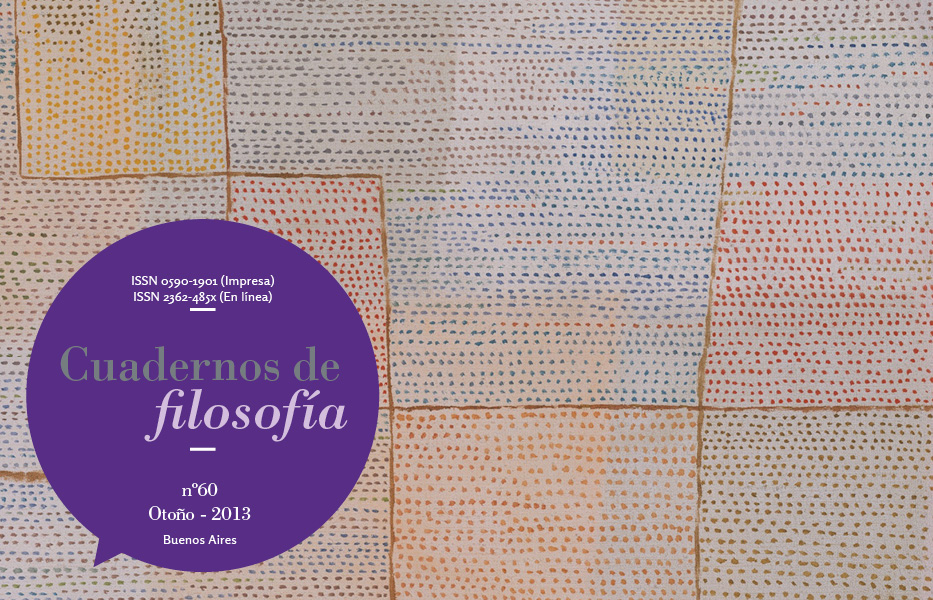La significación ética de la <i>mímesis</i> poética en la <i>República</i> de Platón y su influencia en la estética de Gadamer y Badiou
Abstract
In The Republic –books II, III and X– Plato demands that traditional poets justify their right to educate from several perspectives (religious, ethical-political, ontological-epistemological and psychological). In spite of the clear differences found among these perspectives from which Plato criticises traditional poetry, we find a keyword running through them: the concept of mímesis, whose focus varies depending on the book analysed. Against the backdrop of the conception of poets as moral teachers of young souls, we examine, in the first place, Platonic criticism of poetry in the light of the ethical meaning of mímesis that appears in book III. This is done in order to sustain that philosophical supervision of the poetic tradition ultimately rests on this meaning. Secondly, we analyse the influence that the ethical significance of mímesis and the Platonic gesture of exclusion have had on Hans-Georg Gadamer and Alain Badiou, two important representatives of contemporary philosophy that, taking the problem of the philosophical legitimization of art initiated by Plato in The Republic as their axis, are concerned with the relation between ethics and aesthetics.Downloads
Los autores/as que publiquen en esta revista aceptan las siguientes condiciones:
Los/as autores/as [traductores/as] conservan los derechos de autor/a y ceden a la revista el derecho de la primera publicación, con el trabajo registrado con Licencia Creative Commons Atribución-NoComercial-CompartirIgual 4.0 Internacional, que permite a terceros utilizar lo publicado siempre que mencionen la autoría del trabajo y a la primera publicación en esta revista.
Los/as autores/as pueden realizar otros acuerdos contractuales independientes y adicionales para la distribución no exclusiva de la versión del artículo publicado en esta revista (p. ej., incluirlo en un repositorio institucional o publicarlo en un libro) siempre que indiquen claramente que el trabajo se publicó por primera vez en esta revista.
Se permite y recomienda a los/as autores/as a publicar su trabajo en Internet (por ejemplo en páginas institucionales o personales).
Políticas de detección de plagio
La colaboración de los y las editores/as, autores/as y evaluadores/as de esta revista y la guía de ética de los procesos editoriales se rige por los Principios de transparencia y buena práctica en publicaciones académicas del Committee on Publication Ethics (COPE) disponible aquí.
Todos los artículos enviados a esta publicación serán supervisados mediante una búsqueda online.







